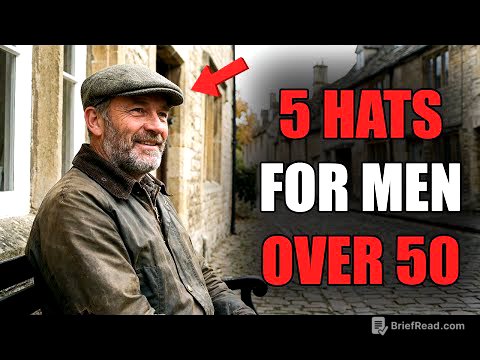TLDR;
The video discusses the dangers of overtraining and sleep deprivation, particularly when combined with late-night workouts. It highlights how these habits can lead to increased stress hormones, muscle breakdown, hair loss, a weakened immune system, and potentially fatal heart problems. The video emphasizes the importance of rest and recovery for muscle growth and overall health, urging viewers to prioritize sleep over late-night workouts.
- Overtraining and sleep deprivation lead to increased cortisol levels, hindering muscle recovery.
- Sleep deprivation can disrupt hormone balance, leading to potential hair loss.
- The combination of stress and late-night workouts can negatively impact heart health, potentially leading to sudden cardiac death.
Intro [0:00]
The video starts by describing a scenario where someone works out late at night despite being tired and stressed. This behavior, fueled by the desire to prove oneself, can feel good in the moment but is ultimately detrimental. The initial feeling of control and strength is misleading, as the body is actually being broken down rather than built up.
The Importance of Recovery [1:02]
Training breaks down muscle fibers, and recovery is essential for growth. The video then includes a promotion for Crossrope jump ropes and their app, which helps track progress and provides structured workout programs. The importance of recovery is highlighted by contrasting it with the negative effects of sleep deprivation.
The Dangers of Sleep Deprivation [2:03]
Staying up late increases cortisol levels, leading to tension and hindering recovery. This imbalance affects the proteins AKT (muscle builder) and FOX01 (muscle breaker), shifting the body from growth to breakdown. The lack of sleep leads to decreased performance, prompting individuals to train even harder, exacerbating the problem.
Hormonal Imbalance and Physical Effects [2:55]
The video explains how sleep deprivation can lead to an increase in dihydrotestosterone, which can attack hair roots and cause hair loss. Additionally, a racing heart and elevated core temperature from late-night workouts interfere with the body's natural cooling process needed for sleep. The nervous system remains in a heightened state, preventing relaxation and rest.
The Cycle of Overtraining and Its Consequences [3:54]
Instead of resting, people often turn to distractions like social media, leading to feelings of unease. The body's immune system weakens due to elevated cortisol levels, making it susceptible to illness. This creates a cycle of being wired, sleepless, and overtrained, further damaging the body.
The Impact on Heart Health and Final Advice [4:46]
Chronic stress and late-night workouts disrupt the heart's natural rhythm, potentially leading to sudden cardiac death. The video concludes by urging viewers to prioritize sleep over late-night workouts, emphasizing that rest is crucial for overall health and performance.









